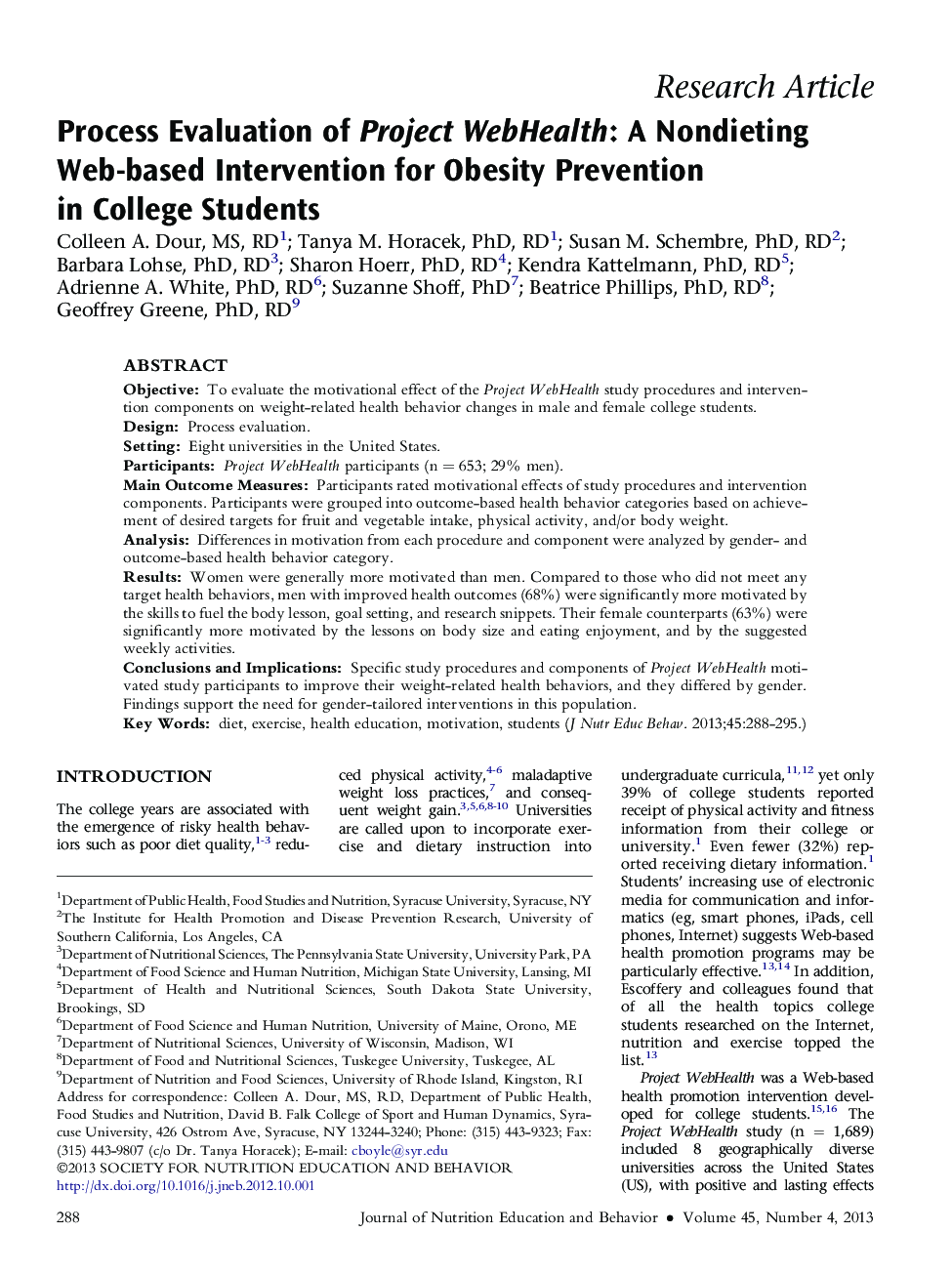| Article ID | Journal | Published Year | Pages | File Type |
|---|---|---|---|---|
| 361392 | Journal of Nutrition Education and Behavior | 2013 | 8 Pages |
ObjectiveTo evaluate the motivational effect of the Project WebHealth study procedures and intervention components on weight-related health behavior changes in male and female college students.DesignProcess evaluation.SettingEight universities in the United States.ParticipantsProject WebHealth participants (n = 653; 29% men).Main Outcome MeasuresParticipants rated motivational effects of study procedures and intervention components. Participants were grouped into outcome-based health behavior categories based on achievement of desired targets for fruit and vegetable intake, physical activity, and/or body weight.AnalysisDifferences in motivation from each procedure and component were analyzed by gender- and outcome-based health behavior category.ResultsWomen were generally more motivated than men. Compared to those who did not meet any target health behaviors, men with improved health outcomes (68%) were significantly more motivated by the skills to fuel the body lesson, goal setting, and research snippets. Their female counterparts (63%) were significantly more motivated by the lessons on body size and eating enjoyment, and by the suggested weekly activities.Conclusions and ImplicationsSpecific study procedures and components of Project WebHealth motivated study participants to improve their weight-related health behaviors, and they differed by gender. Findings support the need for gender-tailored interventions in this population.
